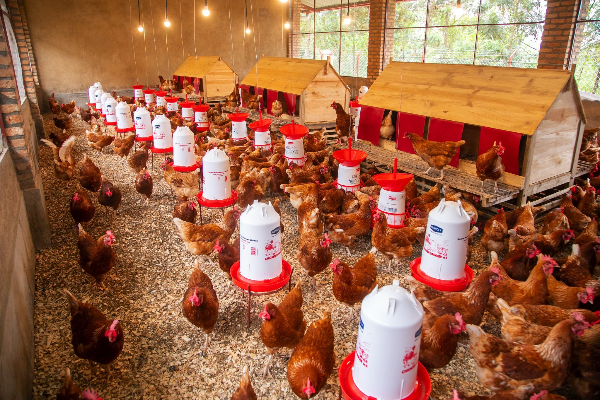Training highlights role of gut health in boosting poultry productivity
Farmers and millers were urged to invest in poultry gut health during a training hosted by Essential Drugs Limited and Biochem, with experts stressing the role of probiotics, prebiotics, and hygiene in improving flock performance, cutting costs, and safeguarding human health.
By Shelmith Gelas
Farmers and feed millers were recently trained on the importance of poultry gut health and its direct impact on productivity, disease resistance, and farmer profits. The session, organised by Essential Drugs Limited and Biochem, emphasised that a healthy digestive system is central to poultry performance and food safety.
Experts explained how gut health affects feed utilization, immune response, and overall flock wellbeing, areas often overlooked by farmers.
“The mentality is not to run away from the bacteria but to control the bacteria,” said Ranier van Heerden, business manager for Ruminant Solutions in Sub-Saharan Africa at global chemicals company Evonik.
Probiotics and prebiotics
Farmers were encouraged to adopt probiotics and prebiotics to strengthen the poultry gut lining, enhance villi growth, reduce pathogen adhesion, and boost nutrient absorption. This approach provides a natural alternative to antibiotics, many of which are banned globally due to their links to antimicrobial resistance.
“Provide an environment where the bad bacteria cannot thrive and only the good bacteria will thrive,” van Heerden advised, underscoring the value of combining probiotics with prebiotics.
By reducing reliance on antibiotics, farmers can cut input costs, improve flock health, and align with international food safety standards.
Tackling salmonella and hygiene risks
One of the key concerns discussed was Salmonella, a pathogen that affects both poultry and humans. In birds, it spreads through contaminated feed, water, or contact with infected flocks. In humans, it is mainly contracted by eating undercooked meat or eggs.
Transmission often occurs via contaminated equipment, even shoes, making strict farm hygiene critical. Farmers were reminded to enforce sanitation practices and ensure meat and eggs are properly handled and cooked.
Practical farm advice
The training also covered day-to-day challenges including cold stress, issues of water quality, and information on enzymes. They were advised to provide more feed during cold conditions to improve digestibility and internal heat, or warm poultry houses using safe methods like heated water. Maintaining a water pH of 4–4.5 was recommended, which is achievable with the use of approved acidifiers, to improve gut health and reduce pathogen risks. Phytogenic enzymes were also highlighted as tools to enhance poultry performance and feed efficiency.
Impact on Farmer Profits
Ultimately, the focus returned to the bottom line – investing in gut health translates into better productivity, reduced losses, and improved profits for farmers. By building flocks that are healthier and less dependent on antibiotics, poultry producers stand to save money while improving food safety for consumers.



